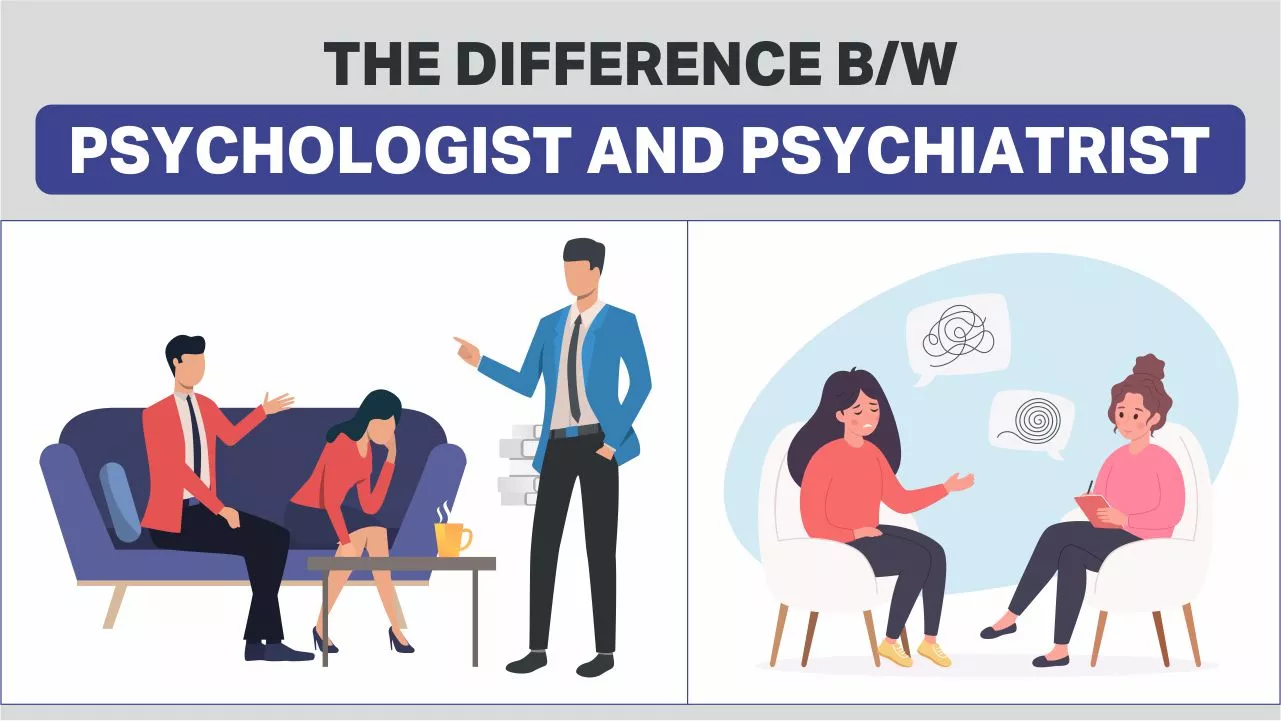Discovering the Best Psychologist in Delhi: A Guide to Your Mental Wellness Journey
Discovering the Best Psychologist in Delhi: A Guide to Your Mental Wellness Journey
Blog Article
The Role of Psych Therapy in Handling Stress And Anxiety and Clinical Depression
Psychiatric therapy has actually emerged as a foundation in the administration of anxiousness and clinical depression, offering tailored interventions that vary from Cognitive-Behavioral Treatment (CBT) to mindfulness-based strategies. These techniques not only help individuals in identifying and reorganizing adverse idea patterns however likewise foster present-moment understanding, minimizing the propensity to ruminate. As we explore the various dimensions of psychotherapy, it becomes evident that these approaches do greater than just alleviate signs; they substantially improve emotional regulation and social abilities - Best Psychologist in Delhi. What stays to be taken a look at is exactly how these therapeutic strategies can be effectively customized to satisfy individual demands, consequently enhancing their impact.
Understanding Anxiousness and Depression
Comprehending anxiety and clinical depression needs a comprehensive appearance at these common psychological health and wellness conditions, which usually exist together and significantly influence an individual's day-to-day life. On the other hand, clinical depression materializes as a prevalent feeling of sadness, vacuum, or sadness, commonly accompanied by a loss of rate of interest in formerly enjoyed activities, adjustments in appetite, and sleep disturbances.
The conjunction of anxiety and depression can complicate and worsen signs and symptoms diagnosis and treatment. Individuals struggling with both problems might experience more serious signs, better problems in work and social functioning, and a longer duration of health problem. This comorbidity requires a nuanced understanding and technique to therapy.
Neurobiological variables such as neurotransmitter imbalances, genetic predispositions, and environmental stress factors add to the growth and upkeep of these problems. Furthermore, cognitive patterns like negative attitude and maladaptive actions can bolster these problems. Comprehending the elaborate interaction of these variables is critical for efficient treatment. Comprehensive analysis by mental health professionals is necessary to discern the presence and level of these problems, leading the way for customized restorative techniques.
Kinds of Psychotherapy
Psychiatric therapy, likewise called talk therapy, includes a variety of therapy modalities made to ease symptoms of stress and anxiety and depression by resolving the underlying mental and psychological issues. Different sorts of psychotherapy are customized to meet the special demands of individuals, supplying a range of techniques to psychological healthcare.
One extensively utilized kind is psychodynamic treatment, which concentrates on understanding and settling subconscious disputes originating from early life experiences. By checking out these deep-rooted issues, clients gain understanding right into their current behavior and emotional state.
Social Treatment (IPT) is an additional effective technique that focuses on boosting social partnerships and function to decrease depressive signs. It commonly resolves issues such as sorrow, function shifts, and interpersonal conflicts.
Humanistic treatments, such as Client-Centered Treatment, highlight personal growth and self-actualization. Best Psychologist in Delhi. These techniques produce a helpful atmosphere where individuals can explore their feelings and develop a stronger feeling of self
Last But Not Least, Dialectical Actions Treatment (DBT) incorporates cognitive-behavioral strategies with mindfulness methods. Originally established for borderline personality disorder, DBT has been adapted to deal with anxiousness and clinical depression by mentor skills in distress tolerance, psychological guideline, and interpersonal effectiveness.
These diverse psychotherapeutic approaches use multiple pathways to psychological wellness and wellness, satisfying specific choices and healing demands.
Cognitive-Behavioral Treatment (CBT)
Amongst the various psychotherapeutic techniques, Cognitive-Behavioral Treatment (CBT) stands apart for its structured, ambitious strategy in dealing with anxiousness and anxiety. Developed by Aaron T. Beck in the 1960s, CBT is based on the principle that maladaptive thinking patterns contribute considerably to emotional distress and behavior concerns. By recognizing and restructuring these negative thought patterns, CBT aims to relieve signs and symptoms and foster much healthier cognitive processes.
CBT is generally short-term, extending 12 to 20 sessions, and includes a collective initiative in between therapist and patient. The therapy encompasses a selection of strategies, including cognitive restructuring, direct exposure therapy, and behavior activation. Cognitive restructuring concentrates on challenging and modifying altered cognitions, while direct exposure treatment gradually accommodates individuals to anxiety-provoking stimuli, minimizing evasion behaviors. Behavior activation seeks to enhance engagement in gratifying tasks to neutralize depressive states.
Empirical evidence underscores the effectiveness of CBT, with various read this researches demonstrating its performance in decreasing signs of stress and anxiety and clinical depression. This healing method has been adapted for various populaces and settings, showing versatile and adaptable. Its organized nature, empirical support, and focus on ability purchase make CBT a keystone in the psychotherapeutic therapy of anxiety and depression.
Mindfulness-Based Methods
Mindfulness-Based Strategies have amassed significant interest in recent times as reliable interventions for stress and anxiety and clinical depression. Rooted in ancient reflection methods, these strategies intend to cultivate an enhanced understanding of the present moment, which can aid individuals disengage from the ruminative idea patterns often linked with anxiousness and depressive conditions.

Similarly, Mindfulness-Based Cognitive Treatment (MBCT) integrates principles from Cognitive-Behavioral Therapy (CBT) with mindfulness methods. MBCT is particularly effective in preventing relapse in individuals with frequent anxiety. By identifying early indication of depressive episodes, individuals trained in MBCT can use mindfulness techniques to mitigate the start of full-on episodes.
Benefits of Psychiatric Therapy
Countless research studies have actually shown the profound benefits of psychotherapy for people grappling with anxiousness and anxiety. Among the essential advantages is the renovation of psychological guideline. Psychiatric therapy furnishes clients with coping techniques to manage stressful feelings, thus reducing symptoms of stress and anxiety and clinical depression. Cognitive-behavioral therapy (CBT), for example, helps individuals recognize and challenge unfavorable idea patterns, promoting a more well balanced and positive expectation.
Furthermore, psychiatric therapy supplies a structured environment for self-exploration and insight. By reviewing their experiences and feelings with a qualified specialist, people can discover underlying issues adding to their mental wellness battles. This self-awareness is a critical action towards lasting recovery and durability.
An additional substantial benefit is the improvement of interpersonal abilities. Anxiety and anxiety typically stress relationships, leading to isolation. Through restorative treatments, patients find you can look here out efficient interaction and conflict-resolution abilities, which can enhance their interactions and foster supportive relationships.
Furthermore, psychiatric therapy provides a customized approach to treatment. Ultimately, the benefits of psychotherapy extend beyond sign relief, contributing to total wellness and high quality of life.

Verdict
Psychiatric therapy substantially adds to the administration of stress and anxiety and clinical depression by supplying efficient coping methods and a safe setting for self-exploration. Techniques such as Cognitive-Behavioral Treatment (CBT) and mindfulness-based strategies are critical in determining and restructuring unfavorable idea patterns, while promoting present-moment awareness. These tailored treatments not just relieve signs and symptoms however likewise enhance emotional guideline and social skills, thereby improving total wellness and lifestyle for individuals encountering these hop over to these guys psychological health and wellness challenges.
Psychotherapy has actually emerged as a cornerstone in the monitoring of stress and anxiety and depression, supplying customized interventions that vary from Cognitive-Behavioral Treatment (CBT) to mindfulness-based methods.Understanding anxiousness and depression calls for a detailed look at these widespread mental health problems, which typically coexist and dramatically effect an individual's everyday life.Among the different psychotherapeutic modalities, Cognitive-Behavioral Treatment (CBT) stands out for its structured, ambitious approach in dealing with anxiety and anxiety.Various researches have shown the profound benefits of psychiatric therapy for individuals grappling with anxiousness and depression. Psychiatric therapy equips individuals with coping techniques to take care of upsetting feelings, thereby minimizing signs and symptoms of anxiety and anxiety.
Report this page